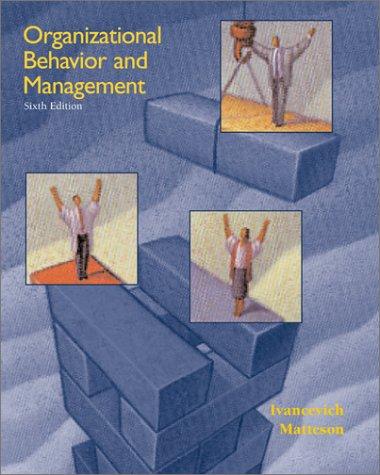Question
Question 10 Congress can impose ____ on monetary policymakers through court hearings. A. information requirements B. responsibility C. benefit D. cost Question 9 Was Paul
Question 10
Congress can impose ____ on monetary policymakers through court hearings.
| A. | information requirements | |
| B. | responsibility | |
| C. | benefit | |
| D. | cost |
Question 9
Was Paul Volker independent from outside pressures?
| A. | No, support from fiscal authorities was necessary to sustain an unpopular policy | |
| B. | No, interest rates should have been lowered | |
| C. | Yes, he resisted fiscal authorities to fight inflation | |
| D. | Yes, he resisted President Carter's criticism |
Question 8
True operational independence for the FED is...
| A. | limited | |
| B. | robust | |
| C. | lacking | |
| D. | exorbitant |
Question 7
As a result the expanding the balance sheet the Fed...
| A. | the balance sheet was disconnected from interest rate targeting policies | |
| B. | the FED was no longer able to change interest rates | |
| C. | the FED could no longer choose what stayed on the balance sheet and what rolled off | |
| D. | the balance sheet was no longer a financial instrument |
Question 6
Appointment power gives the President the ability to direct Fed policy.
True
False
Uncertainty stemming from discretionary monetary policy causes...
| A. | nothing | |
| B. | internal pressures | |
| C. | external pressures | |
| D. | internal and external pressures |
Question 4
The only way to eliminate the incentive problem is...
| A. | to bind the hands of monetary authorities with a pseudo-monetary rule | |
| B. | to bind the hands of monetary authorities with a monetary rule | |
| C. | to free up monetary authorities from monetary rules | |
| D. | to give monetary authorities discretion in their decision-making |
Question 3
Why does Milton Friedman believe the Fed is unwilling to change its methods of operation?
| A. | inertia | |
| B. | private bank interference | |
| C. | using too many academic economists as chairmen | |
| D. | bad faith actions |
Question 2
Why did Congress introduce legislation that would have given the votes of the Federal Reserve Bank Presidents to political appointees in the wake of the 2008 crisis?
| A. | They were unhappy with the size of the interventions | |
| B. | They were unhappy with the extent of the interventions | |
| C. | They were unhappy with the size and extent of the interventions | |
| D. | They were unhappy with the nature of the interventions |
Question 1
Economists tend to ignore that institutions matter in applied work.
True
False
Step by Step Solution
There are 3 Steps involved in it
Step: 1

Get Instant Access to Expert-Tailored Solutions
See step-by-step solutions with expert insights and AI powered tools for academic success
Step: 2

Step: 3

Ace Your Homework with AI
Get the answers you need in no time with our AI-driven, step-by-step assistance
Get Started


